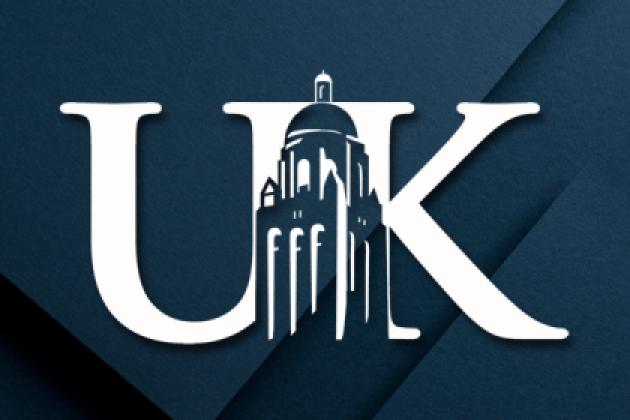- Economics
- International Affairs
- History
- World
Recorded on June 22, 2018
Will the United Kingdom really follow through on Brexit? British politician Daniel Hannan believes that Brexit is happening and cannot come soon enough. As a staunch proponent for the “Vote Leave” side, Daniel Hannan has been ready for Brexit since the referendum vote in 2016. He sits down with Peter Robinson to chat about what Brexit means for the UK, how soon it’s coming, and the likelihood of compromise between the now polarized British parties.
The United Kingdom became a member of the European Union in 1973. In June 2016, in a close 52 to 48 vote, UK citizens voted to leave the EU. Two years later and the UK is less than a year away from their deadline to leave by March 2019. Guest Daniel Hannan explains that while Brexit will ultimately be a good thing for the UK, arguments in Parliament have dragged out the question of if Brexit will happen, even though it’s already been settled by a referendum. Hannan argues that polarization amongst parliamentary parties is preventing real negotiations from taking place that will allow the UK to find the best compromise and regain their voting powers that citizens feel were diminished by membership in the EU. Hannan explains where the Brexit process is at in Parliament and what he feels is the best course of action for the EU moving forward.
About the Guest:
Daniel Hannan is a British writer, journalist, and politician. Since 1999, he has been a Conservative Member of the European Parliament for South East England. He is the founding president for the Initiative on Free Trade. His most recent book is What Next: How to Get the Best from Brexit.
Peter Robinson: The United Kingdom has been a member of the European Union since 1973, which is to say since our guest today was two. But in a referendum in June 2016, the British people voted narrowly to leave the EU. The questions of whether and on what terms the United Kingdom will actually leave the EU, whether there will really be a Brexit, have roiled British politics ever since. With us today, one British figure who believes Britain can't Brexit fast enough. Daniel Hannan on Uncommon Knowledge now.
Peter Robinson: Welcome to Uncommon Knowledge. I'm Peter Robinson. We're filming today in Denmark at the Copenhagen Democracy Conference. Born in Lima, Peru to British parents, Daniel Hannan was educated in the United Kingdom and holds his undergraduate degree from Oxford. In 1999 Mr. Hannan was elected to represent a constituency in Southern England in the European Parliament, a body from which he believes Britain should remove itself altogether, but to which he has been re-elected three times. During the referendum debate, Mr. Hannan was one of the founders of Vote Leave, the organization that campaigned in favor of withdrawing from the European Union and the author of a booklet, 'Why Vote leave'. Crisscrossing Britain, Mr. Hannan spoke again and again against the European Union. On June 23rd, 2016, Mr. Hannan seemed to get his way when the British vote to leave the European Union by 52 to 48 %. I say he seemed to get his way because it is now unclear when and on what terms Britain will finally negotiate a withdrawal from the European Union, or whether as some argue it should, Parliament will simply ignore the referendum results altogether. In a word Mr. Hannan still has a fight on his hands. Daniel Hannan. Welcome.
Daniel Hannan: Great to be back.
Peter Robinson: Daniel, the European Union, a peaceful organization of 400 million people in 27 democratic nations. Rich, stable, humane, and yet as long ago as your university days when you founded the Oxford Campaign for an Independent Britain, you have been railing against the European Union with all your considerable energy. How come?
Daniel Hannan: Well, if the European Union were simply an association of rich, stable democratic states, you'd have to be mad to be against it. There'd have been no arguments, there'd have been no referendum. Who would have had a problem with working with friends and neighbors to achieve collectively what we can't achieve singly? But the European Union is not just an association of states. Uniquely, it creates its own legal order that is superior to the national laws and constitutions of its members, and it does this because it wants to over time become a single state or something very close to being a single state or a country called Europe as the sign in the European Commission calls it.
Daniel Hannan: And it has acquired one by one. All of the attributes and trappings that we normally associate with nations. Note it has a parliament, a currency, passport, flag, national anthem, national Day, Supreme Court, a president, external borders, representation at the UN. So this is not a question of international cooperation. Britain is an enthusiastic participant in the G7, The Commonwealth, NATO, The Council of Europe. We have no problem with that. The problem is to do with sovereignty and with the right to hire and fire the people who pass our laws.
Peter Robinson: All right, let's take a moment or two to discuss the referendum itself because it's still being argued about. We happen to be recording this almost exactly two years to the day after the referendum. You have 70% of eligible voters casting their ballots. It's a fairly high turnout and they vote to leave the EU by not quite 4%. But let's run through the arguments here. According to the unwritten but venerable constitution, some argue, no referendum can be anything other than advisory. A thousand years of British history leads to the conclusion that the final decision must be taken by parliament, and the people in a referendum can do nothing but advise parliament. So referendum, schmeferendum, it's up to parliament to pursue or to let lie the question of separation from the EU. And it looks very much as though parliament would just as well stay in.
Daniel Hannan: What's striking is that the people who now say that, were taking the opposite line rather strenuously in the run up to the pole. So the Nick Cleggs and Paddy Ashdowns and so on, before the vote, when they thought they were going to win were saying, "This has to stand. There'll never be a second referendum. Anyone who doesn't accept the result will be betraying the will of the people." And they were right the first time. And the reason they were right the first time is that of course you're quite right, constitution to the extent that it can be said to exist, elevates parliament and there's no mechanism for a referendum. But this parliament chose as a sovereign body to legislate for a referendum. It made clear that it would accept the result and MPs then voted accordingly to trigger the process of leaving.
Daniel Hannan: So parliamentary sovereignty has been maintained and will be enhanced when powers come back from the European Union to parliament. I mean, it's a pity though because it was a narrow result, right?
Peter Robinson: Four points.
Daniel Hannan: 52, 48 is not a-
Peter Robinson: Unambiguous but narrow.
Daniel Hannan: It was ambiguous, 17.4 million people is more people than have ever voted for anything.
Peter Robinson: Correct.
Daniel Hannan: But it seems to me in the aftermath of that result, that we should try and find a compromise that both sides could live with. It might go too far for some, not far enough for others, but a model of association with the European Union that would reflect both on geographical proximity and our historical links and the division of opinion in the UK. In other words, I took a 48, 52 result as a mandate for a phased gradual recovery of power. It's not a mandate to walk away. Unfortunately. Instead of having that debate, we've now spent two years stuck in June 2016, arguing about whether it's going to happen at all. And instead of building a consensus about how to make a smooth cordial Brexit that brings benefits to the EU as well as to us, we've had this endless re-run of whether it was a legitimate referendum and you said this and they said that and so on. And apart from anything else, it soured the atmosphere in a way that is really unfamiliar in Britain. I think of that Thomas Jefferson line about never seeing a difference in politics, philosophy or religion as a course to withdraw friendship. There've been a lot of withdrawn friendships over the last few years and this is new for us. It's not in our experience and it's terribly sad because it's created a captious atmosphere which is not only unpleasant in itself, but it has made us ineffective in the renegotiation process and it's made less likely a good outcome.
Peter Robinson: Daniel, another couple of points about the vote because what they want to still hear is this, immigration. Beginning in 2015 hundreds of thousands of migrants from the Middle East and Africa make their way into continental Europe. Angela Merkel accepts more than a million immigrants in the course of one year, and British people look at that and say that, "It may happen on the continent, but we're not going to let it happen here." And so the vote for Brexit, so goes the argument, was a xenophobic, even a racist anti-immigrant vote. It was fear of immigration that gave you that 4% victory. How do you answered to that?
Daniel Hannan: I'm sure you could find some people of whom that's true, right? It was 17.4 million people, so there will have been in those 17.4 million people voters motivated by all sorts of different things, some more eccentric than others. But you can test empirically what were the biggest issues for leave voters? You know, there was a series of qualitative and quantitative polls done, surveys of why they were voting the way they did, including a massive exit poll on the day, more than 12,000 people much larger than the normal. And all of them said the same thing, that the top issue for leave voters was the principal of decisions that affect the UK being made in the UK. Immigration was offered as a separate topic and it usually came a distant second.
Peter Robinson: I see.
Daniel Hannan: So it was an issue. It was an issue, but it was not the issue, and I'll offer a little kind of heuristic here. Any Brit who tells you that it was all about immigration was a remain voter. I've yet to come across an exception to that rule. Because they feel more comfortable arguing against-
Peter Robinson: It's a form of virtual signaling as we have in the United States now.
Daniel Hannan: Partly that, but it's a remarkable unwillingness to look at what the actual data say. And when you point out these facts that, "Look, this is what most people said." They say, "Oh, well I met this leave voter and he said, "Yeah, okay."" But your anecdote doesn't actually trump the opinion polls.
Peter Robinson: All right. So the curious thing is that even though we're talking about the vote which now took place two years old, we have to talk about the vote because it's still being talked about in this way. There's this kind of strange sense in which everything has just been frozen up in Britain.
Daniel Hannan: But you see that that didn't need to happen Peter. In Scotland there was a referendum on independence in 2014. It was a 55, 45 result. So still fairly narrow as these things go. Very quickly, the two sides came together and said, "Okay, if we're going to build any kind of consensus here, it will have to be on the basis of further devolution that stops short of complete independence." Now some people are going to say that that's too much, some people are going to say it's too little, but at least both sides can live with it. Something similar ought to have happened by now on Brexit and because of intransigent voices on both sides, that debate hasn't happened. Now I hope it may happen because the bill that takes us out has just gone through parliament, so the fact of Brexit is no longer in dispute.
Peter Robinson: We'll come to that in a moment. What was Project Fear? We're talking to Americans now, what was Project Fear?
Daniel Hannan: During the campaign, not only remainers but the treasury, the Bank of England, the IMF, the OECD came out with most hair raising predictions of economic meltdown in the event of a leave vote. Important to stress in the event of a leave vote. This was what they were saying would happen immediately after voting leave, not after we actually left. What do-
Peter Robinson: The other thing I also want to stress is you mentioned, the Treasury and the Bank of England. You mentioned engaged in this, what I think has to be referred to as a propaganda campaign. In the strict sense they were trying to persuade voters, were central arms of the government-
Daniel Hannan: They said there would be a recession in 2016. We grew faster in the six months after the vote in 2016 than in the six months before. They said that our pensions would all be wiped out because of the collapse of the stock exchange. Stock Exchange is at record levels. They said that unemployment by now, two years on, would have risen by between 520,000 and 820,000. That was the official treasury prediction. It is in fact fallen by more than 500,000. There are more people in work than ever before in British history. Exports are up, consumer confidence is up, manufacturing is up, investment is up. You can measure it in any way you like. Here's the really interesting thing. How do they respond, the people who got it wrong? Do they respond by saying, "Thank heaven I got that wrong. Maybe I should check some of my prejudices or go back to some of my foundational assumptions"? Of course not. They behave like doomsday cultists. "The apocalypse is still coming. Yeah, it hasn't. It didn't happen on the day I said it would. But just you wait, just you wait." And that I'm afraid again, it makes for a very sour and difficult ambiance.
Peter Robinson: Now take me through, again, this is for the American audience, take me through the political effects and obviously we'll come to the present moment, but we need to understand a little bit the buffeting that took place immediately after the vote. So Brexit passes by four %. The British people vote to leave and the prime minister, David Cameron and the Chancellor of the Exchequer, George Osborne both resigned. Why did they do that?
Daniel Hannan: Well, David Cameron resigned. George Osborne was then sacked by the new prime minister.
Peter Robinson: I'm sorry.
Daniel Hannan: David Cameron resigned I think because he had invested so much in this policy and felt that it would have been dishonorable to carry on.
Peter Robinson: Fair enough.
Daniel Hannan: Yes. I mean, he and I obviously were on different sides in the referendum, but I've always thought he's somebody who tries to behave as he thinks a gentleman ought to behave, and this was a good example. He has, by the way, comported himself absolutely flawlessly since the referendum. He's never questioned the result. He hasn't taken back any of the things he said in favor of the EU, but he respects the verdict.
Peter Robinson: And how did Theresa May ... David Cameron resigned because he had opposed Brexit. The Conservative Party elects in his place the woman who is still prime minister, Theresa May, who also opposed Brexit. How did that happen?
Daniel Hannan: That was a big surprise. Most of the pundits had said the government now has to be led by somebody who campaigned leave, but you know, history branches in funny ways, doesn't it as as we both know. And through a series of rather unforeseeable events, the main leave leadership candidates kind of disemboweled each other.
Peter Robinson: Boris Johnson and Michael Gove.
Daniel Hannan: Boris Johnson and Michael Gove. And so Teresa was left, simply by standing still, as the only serious contender in the ring.
Peter Robinson: All right? On March 29th, 2017, Prime Minister May, Theresa May, the one we've been talking about, invoked article 50 of the Lisbon Treaty. According to which the United Kingdom would exit the European Union in two years. She had the power to set the clock running and she did it. And according to article 50 of the Lisbon Treaty, in two years, Britain will be out, correct?
Daniel Hannan: That's correct.
Peter Robinson: All right. And Britain may negotiate terms for withdrawal, or Britain may leave without terms negotiated, but one way or the other two years after that clock started running, Britain is out. Correct?
Daniel Hannan: Unless there is a unanimous agreement by all 28 countries. So Britain and all of the others to extend the two year period.
Peter Robinson: And you think the likelihood of that is?
Daniel Hannan: I suppose it is possible that there could be an extension for a few weeks if they were in the middle of doing something. Other than that I think it is very unlikely.
Peter Robinson: I see. Okay. All right. So now let me give you two quotations and ask you to make sense of them because I cannot. Prime Minister May March 29th of last year. "Let no-one doubt or determination or question our resolve, Brexit is happening. It will be there in black and white on the front page of this historic piece of legislation: the United Kingdom will be leaving the EU on March 29, 2019 at 11:00 PM." "Done. It's over. We're out."
Peter Robinson: Second quotation by your friend and mine, Charles Moore, one of the great journalists in Britain. This is Charles writing in The Telegraph just last week. "Over centuries, Britain achieved a parliamentary system based on the idea that people's votes were meaningful. Then it gave half of this vote away to Europe", loss of sovereignty to Europe as you were explaining, "By voting leave, we insisted that our votes must recover their meaning. If that vote is now rendered meaningless, we shall lose faith in voting itself."
Peter Robinson: The prime minister said, "We're out", and Charles Moore said - is writing about political machinations that raise the doubt that Britain will be out. How can this be, I don't understand?
Daniel Hannan: The good news is that between Charles writing that article and our interview this week, the principal attempt in parliament to effectively block Brexit has been defeated.
Peter Robinson: So explain that.
Daniel Hannan: Nobody can quite come out and say, or very few people come out and say, "I believe that the people are a bunch of idiots and we should ignore the verdict." I mean, Nick Clegg came fairly close today to saying that. But very few ... He's no longer in parliament, so very few MP's can say that. So what they say if they want to stop Brexit is something that sounds incredibly reasonable, which is, "Parliament should have a final say on the deal."
Peter Robinson: Right.
Daniel Hannan: Until there has been an additional specific vote by us, we should just keep the talks process going. But stop and think about this for five seconds. Once such a vote had gone through, the EU would have had no incentive even to carry on the discussions, let alone to have offered any concessions because as long as parliament is saying, "We will stay in until we like the terms, you are incentivizing the EU to offer the worst possible term, right? And everybody knew that including the people proposing it. They were perfectly aware of what they were doing. In the end, their amendment was narrowly defeated, so I think the fact of Brexit is no longer in jeopardy. The terms are of course still to be discussed and this is the argument that we should have been having over the last few years that I hope now finally can begin. How do we have a Brexit that works for our European allies as well as for us?
Daniel Hannan: We have a stake in their prosperity. We don't want to leave in a way that is traumatic for either side. We want to keep the things that benefit both sides of the trade and so on. Until we have a united national consensus on what kind of Brexit that is, we are in a weak position.
Peter Robinson: Well, okay, so let's just nail this down. When the prime minister said last March, the United Kingdom will be leaving the EU on March 29th 2019 at 11:00 PM. That stands.
Daniel Hannan: That now seems overwhelmingly likely. Yeah.
Peter Robinson: Okay. So that gives you a matter of months, a single digit number of months in which to achieve this national consensus that you're talking about and then run over to Brussels and negotiate. You're not going to be able to do that.
Daniel Hannan: This has been the problem.
Peter Robinson: What are you going to do?
Daniel Hannan: So the prime minister in every speech she's made from the start has said, "I want to be the EU's closest friend, strongest ally. We want to be good partners." Far from reciprocating, the European negotiators have taken an almost deliberately derisive tone. "You're going to have to be seen to pay for this." And quite extraordinary talking as though we were an unfriendly status, like we were Russia or Iran or something. And the reason they've been doing that is because they can see ... Well, they could until last week, see British remainers doing their work for them. Why make any concessions when the Lords and Commons may deliver what you want, either a reversal of Brexit or which would be even better from their point of view, keeping Britain in as a kind of non-voting member. A kind of vassal state, subject to all of the rules, but without representation in the institutions without a veto, without a vote. Subject as you guys might put it, to taxation without representation. Only now that it's clear that we're leaving, can we begin to have serious talks with EU about the terms of disengagement?
Daniel Hannan: Because unless it's clear that we are prepared to walk away, if the terms are not good, why on earth would the EU make any concessions at all?
Peter Robinson: All right, so now give me an education on what's going to be happening between now and March 29th 2019. I come to you from the United States where about all I know is that people keep talking about a distinction between your hard Brexit and a soft Brexit. What would those be? What's the likelihood of each?
Daniel Hannan: They've become almost meaningless terms because people use them to advance whatever are their personal preferences, but it's-
Peter Robinson: So let me put it this way. If events of the last week were so critical, and this is the first moment Britain really is in a good position to begin negotiations, do you know? Has the government made clear what it's negotiating position is? Or is there now a mad scramble for the government to pull itself together?
Daniel Hannan: Yes. The government has in broad terms and even in, in sort of medium grande terms, made it's positin clear. We want to be part of a common market, we want to be part of a continuing security arrangement, we want to be ... For American viewers, let me put it like this. You have on your doorstep a sovereign country with about a 10th of your population that is about as close to you in security, intelligence, diplomatic, military, and economic and trading terms as a country can be while remaining sovereign.
Peter Robinson: Correct.
Daniel Hannan: No one seriously suggests that federal judges will be able to appoint Canadian judges, but it is basically as close as it can be in terms of friendship as a neighboring country. And I think that's the kind of model that we're after. What's interesting is the-
Peter Robinson: And that's well understood.
Daniel Hannan: That's been the position of the prime minister and the foreign secretary in every utterance they've made. What's interesting is that the EU bureaucrats, not the national capitals, which I think are very favorable to the session outcome, there are elements in Brussels who take an almost theological position on this. We blasphemed against the doctrine of ever closer union by voting leave. We now need to be excommunicated for the heresy. And I think without doubt, I mean I've spoken to a number of them in Brussels, there are people who would rather see a cost paid by all sides, would rather see the EU 27 and Britain come out of the process with a less than beneficial deal than see a post-EU Britain prosper.
Peter Robinson: Britain must be punished even if the EU is punishing itself-
Daniel Hannan: But that's the only way it can happen.
Peter Robinson: In the interest of preserving the rest of the union. That's their argument. "If we make it easy for you then the Italians will come after us next."
Daniel Hannan: You know, and I know, and your viewers know that the only way that you can sanction another country in economic or commercial terms is at some cost to yourself. And in fact, the cost is disproportionately to yourself because it seems to me unimaginable in any situation that a post-EU United Kingdom will start imposing tariffs or trade barriers on it's former partners. Any tariffs or trade barriers would therefore be on the EU side, and as we know, a tariff is always more damaging to the country applying it than any incidental damage felt by the exporters of the other countries.
Peter Robinson: Right. One of one other issue that has made its way across the water, and that is the question which, again, this one I find baffling somehow or other the question of the border between Northern Ireland and the Republic is portrayed as a sticking point that could scupper the whole deal somehow. So the Good Friday agreement that achieved a substantial peace between Northern Ireland and the Republic and according to which the IRA laid down its arms is in one way or another predicated an easy passage between Northern Ireland, which remains part of the United Kingdom and the Republic of Ireland. That much, is that correct?
Daniel Hannan: Right.
Peter Robinson: Okay. And why does a British withdrawal from the EU require Britain to erect-
Daniel Hannan: It doesn't. It doesn't. And Britain has made very clear that it will not erect any physical infrastructure on its side of the line. Modern technology has made border infrastructure redundant. Customs clearances these days are done online in advance, you have camera recognition technology. You don't need posts, you don't need barriers. And the UK and the Republic of Ireland, this was agreed right at the outset will retain their deal on free movement of people. So there's no need for a border and we have said right from the start, there will be no border on our side. The argument is about how do we avoid a border on the other side? And incredibly-
Peter Robinson: Well, that's their problem.
Daniel Hannan: Exactly, and yet weirdly it's become in the whole process our responsibility somehow, and of course that's an impossible situation. How on earth can we determine what the Republic of Ireland does on its side? And yet somehow this line has got out, "Well you caused the whole thing by voting leave, therefore this is your responsibility." It is not in our gift to determine what happens on the other side of the line. And that idea that it is our responsibility for having voted leave is absurd. It would be exactly analogous to say, "Well, it's your responsibility of having created the border in the first place in 1921." It would be a stupid thing to say, right? It seems to me that the correct thing for us to do would be to say, "Look, we repeat, there will be no border on the UK side. We are now prepared to work with you on any reasonable proposal to avoid infrastructure on your side. We suggest that the way of doing that is for a comprehensive UK, EU treaty based on the mutual recognition of goods and services which will make such a border almost completely irrelevant and any checks won't need to be done then at the border, they can be done as they are now because there are occasional checks now behind the border when companies file their customs declarations.
Peter Robinson: All right Daniel, take me through. Let's step back and think of the European Union. Just explain the European Union to me, the psychology of the European Union with those who have built it or attempting to build. Now, I will again be crude because I'm observing all of this from thousands of miles away, but I think I can kind of grasp an underlying psychology almost country by country. Correct me.
Peter Robinson: So the Germans, all these decades later, they still feel a war guilt, and they want in one way or another to dissolve their identity as Germans in a larger and new identity. They want to become Europeans. Sort of something there?
Daniel Hannan: Sort of. Perfectly honorable motive in a way.
Peter Robinson: Yes, yes, yes. If I were German myself, I would still feel, even though it wasn't my generation, the horrible history. The weight of that history must be horrible.
Daniel Hannan: To put it more gently, it is difficult to express patriotism as a German in the same way that other countries do, and therefore there is a surrogate way of doing it as a European.
Peter Robinson: Okay, fair enough. France, there's still even now what De Gaulle himself insisted on, that France cannot be France without being great. And the only path for France, which is now a small country with a sort of so, so modern economy is to join itself to some larger entity and that's the path for back to la grande France. There's some psychology where that's the outlet. Fair enough? Is that a bit of what's going on?
Daniel Hannan: Kinda sorta.
Peter Robinson: Okay. Kinda sorta. Spain is the European Union that ends their isolation, right?
Daniel Hannan: Definitely.
Peter Robinson: For the Italians, you'd rather have Germans running your central bank and your currency than-
Daniel Hannan: Until now.
Peter Robinson: Until now. Okay. So you could sort of see-
Daniel Hannan: And for the small countries they were fed up with being dragged [Foreign Language 00:28:20] into wars not there.
Peter Robinson: Right. So almost it sort of makes sense ... What I'm getting at is it makes a psychological sense. There are arguments for it that also sort of add up for the continent.
Daniel Hannan: Most of those arguments are weaker with young people, right? Most of those as you would have realized as you were saying, they are old arguments that have stronger appeal for elderly voters. You can remember the isolation-
Peter Robinson: Okay so let's go to that question right there. So the question there is, are we going to see this notion of populism sweeping Europe? We hear that in the United States. Then we also hear, "oh no, no," It's just young people, they're just rebelling. It's the usual. Is the European Union losing its purchase on electorates across the continent?
Daniel Hannan: I think over time, yes it is. And I think part of the rush to political union and part of the absolutism in the face of Brexit is the fear of the old men in a hurry. They sense that when the immediate postwar generation passes, they will no longer be able to ask for sacrifices in the name of this ideal and therefore they have to create a structure which is going to outlast the generation that built it. But of course you're right, I mean, Britain never had that sense in the first place. It was the only European country to have come through the second world war without having been defeated.
Peter Robinson: With a national pride enhanced.
Daniel Hannan: And therefore its institutions were not seen as having failed. Patriotism hadn't been tainted by collaboration or by fascism, on the contrary was the focus of our resistance against the Nazi tyranny.
Peter Robinson: Explain to me, why leave got as large a vote as it did. What were they thinking? What would Nick Clegg tell us if he was-
Daniel Hannan: The main causes?
Peter Robinson: I beg your pardon. We'll remain-
Daniel Hannan: Status quo bias. I mean, simple as that? Almost all referendums tend to go in favor of the status quo. People aren't change averse. It's a deep psychological phenomenon. And this is why the idea that we will ever rejoin is just for the birds. Once the change aversion is working the other way, forget it.
Peter Robinson: Got It, got it. One other question about the EU, De Gaulle, Adenauer. De Gaulle by the way as you know well refused to permit Britain to join the EU. It was only after he died that he's got-
Daniel Hannan: Yes, and he refused for very good reason.
Peter Robinson: So what were the old men thinking? De Gaulle and Adenauer. Both of them were intensely patriotic. It's hard to imagine that either of them would have pursued this project if either of them believed it meant any surrender of national servitude.
Daniel Hannan: Well, De Gaulle was equivocal about it.
Peter Robinson: Was he?
Daniel Hannan: De Gaulle went through one phase where he boycotted the whole thing. He never liked the federalism. Uh, he used to say, I want a Europe [French 00:31:11] He was a euro skeptic in a sense, but he did see Europe as a counterweight to the United States and therefore as a way of France recovering its glory.
Daniel Hannan: But I think you and I thank God have not had to go through the horrors that their generation did. And I kind of understand the motives of people in the 50s and 60s who said anything has got to be worth trying if it averts the risk of another war. I think that is wrong. I think that argument fails in its own terms. I think wars in Europe have more often being caused either by ideology, by fascism, communism, Jacobinism, you know, religious fundamentalism or where nationalism is a factor, It is usually the repressed nationalism or for people who have been wrongly conscripted as they would see it into a state that they don't feel any allegiance to. And I would say that a move towards more democratic and small estates is generally quite a good one. The world is going in that direction as the EU goes in-
Peter Robinson: Last question in this on the EU per se, what is your answer to Nicholas Soames, member of parliament, conservative member of parliament and grandson of Churchill who said during the referendum debate that his grandfather would have voted remain.
Daniel Hannan: It's impossible to say that. For what it's worth, both sides tend to conscript Churchill's ghosts because it's true he used the phrase United States of Europe, which is the bit that is always quoted in the European Parliament and the European Commission. He said this in a speech in Zurich. "I'm going to say something that is going to astonish you. We should have the United States of Europe." But he then goes on in the same speech to make perfectly clear that he doesn't see Britain as being part of it. He finishes by saying the United States and the United Kingdom, and perhaps in time even the Soviet Union will look on as friends and sponsors of this project.
Daniel Hannan: So you can argue it either way, but I think he had a strong sense of Atlantisism, and he had a strong sense of Britain as a global nation rather than just a regional one.
Peter Robinson: Last questions, a couple of final questions. What does Brexit mean for the United States?
Daniel Hannan: Well, I think we've got a terrific opportunity now to have a proper comprehensive bilateral free trade agreement. You are our biggest trading partner and we are yours. A million Americans every day turn up to work for British owned companies. A million Brits everyday clock into work for American owned companies and this is happening without there big any trade deal because the EU will not sign a trade deal with the United States, for a whole bunch of reasons to do with protectionist interests on the continent. That can change, and the challenge Peter is to get not just a trade deal between the US and UK.
Daniel Hannan: Let take it as right that, that's going to happen. Both governments have committed to it. The real opportunity is to make it a proper comprehensive trade deal based on complete mutual recognition, so that whatever is legally in your country is automatically legal in mine and vice versa. The drug is approved by the FDA. That's good enough for us. If a guy is qualified to practice in the city of London, he can practice in Wall Street. If we could do that, different way of doing trade, instead of trying to regulate and standardize, we just have reciprocity that would massively boost both our economies and it would provide the world with a different and better model of liberalization.
Peter Robinson: Last question. The year is 2023. Not the deep distant future, just five years from now. Describe the state of the British economy and the state of the British relationship with Europe, and the state of British morale.
Daniel Hannan: Well, it depends how our next election goes. Brexit on its own does not add a farthing to our national wealth. What it does is it removes constraints and it allows us to make different choices. Now, being free as a country includes the freedom to fail. So what kind of post-EU future are we going to have? We could be a high seas free trading nation in the mold of New Zealand or Singapore or Australia, or we could be Venezuela under Jeremy Corbyn, or we can be somewhere in between the two. The Labor leader who was a great Chavez Fan and indeed regularly used to cite Chavez as a role model, although he now instructed to delete all of the articles that he wrote about that. This is what being in a democracy means.
Daniel Hannan: And in general, I believe that if you give people more responsibility, they behave more responsibly. Your country was founded on that principle and I can't help noticing that it's done okay. You voted leave in 1776, it's worked out, right? Very few countries over time become poorer as a result of becoming more democratic and more independent. So we may make some bad choices, but I would rather live in a country where people are free to make those choices than live in one where their choices are circumscribed by bureaucrats who claim to know better.
Peter Robinson: Daniel Hannan, author, journalist, member of the European Parliament, and advocate of British sovereignty. Thank you. I'm Peter Robinson for the Hoover Institution and Uncommon Knowledge. Thank you.























